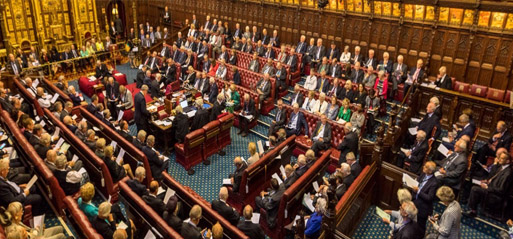
The Palace of Westminster has been the centre of political power in the UK for over 900 years. Parliament has evolved to assert its authority from absolute rule by the monarchy to what is supposed to be a modern democratic legislature in an age of technology.
Progress appears to have included a secret anti-Islamic organisation that has been operating out of the House of Lords for over a decade.
A huge cache of documents acquired by Hope Not Hate (HNH) portrays peers meeting with well-known far-right extremists and representatives of prominent Christian organisations.
The hidden agenda has been opposing Islam, not only through legislation but also on the streets of the UK. There is evidence of foreign funding from US evangelicals being funnelled to support the group, which includes writing and editing parliamentary questions. At its core is the importance of complete secrecy, which is said to have been impressed upon attendees.
There is a long and notorious history of secret societies and clandestine organisations in Britain from ancient times that have wielded significant hidden power up to the present day. Many have been attracted to esoteric religious beliefs, with networks of Freemasonry among the most notable.
Some have been embedded within core British institutions such as the police and judiciary, not to mention the business world as well as parliament, but whose influences were believed to be more a thing of the past.
The House of Lords itself often comes under criticism for its lack of accountability, built upon an archaic heredity system supplemented by a corrupt political appointee procedure that has cried out for reform ever since its inception over two centuries ago.
The discovery of the New Issues Group sets a new precedent in apparently seeking to raise awareness of the perceived dangers of Islam within the UK, though in a climate of much prejudice against Muslims. To do this, members of the upper house have devised a range of tactics and targeted lawmakers while also using the media as well as both campaign and street protest groups.
Members have seemingly not denied the existence of the secret organisation. “The defence offered by many of those involved in the NIG is that they are against Islam but are not ‘anti-Muslim,’” HNH reported.
The findings, though, “show that the key individuals within the group sometimes make no distinction between Islam and Muslims or between radical Islamists and the wider Muslim community.” Following the discovery and their admission, the glaring question is why the group still exists and why they are not being purged from parliament.
According to the general principles of the House of Lords, peers are required both “to comply with the Code of Conduct” and always to act “on their honour” in the performance of their parliamentary duties and activities. These include selflessness, integrity and being open and accountable.
There are also rules regarding all-party groups with basic principles for members to follow, including being transparent.
Demonstrating how entrenched Islamophobia has become in British society, not only has there been no outcry in the upper chamber about the existence of this pernicious group, but there has been scant media coverage as well.
The time is overdue for at least the Committee on Privileges and Conduct to be involved. The breach is much wider than members not declaring their interests but being part of such a previously clandestine organisation.
(Photo credit: Greggy1900)
READ MORE